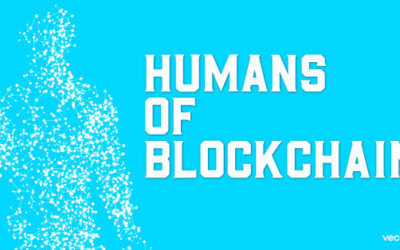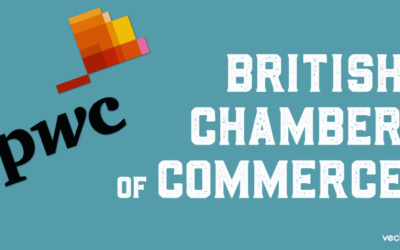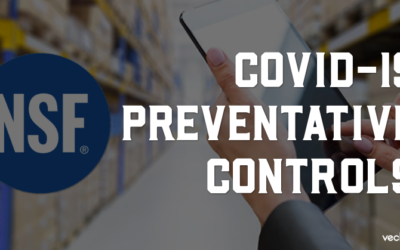For the average investor, few names command more attention than a member of FAAMG (Facebook, Apple, Amazon, Microsoft, and Google). So when the community saw pictures of Microsoft Azure and VeChain co-hosting an event at PwC’s office in Singapore, it left many scratching their heads as to what it actually meant. Since not all of us are Computer Science majors, let’s take a closer look at what this actually means.

What is a partner?
The cryptocurrency community has somewhat abused this word over the last few years, tossing it around and raising expectations in the hope of gaining a few extra investors along the way. Slowly the word partner has become to hint at exclusivity and anything less than that is likely to trigger mass confusion.
The reality is that many tech companies have hundreds of partners, spread across different fields and serving different purposes. AWS and Microsoft Azure are perfect examples, as competing cloud computing companies, it is their goal to offer as many products and services to their customers as possible. In this manner, they can convince companies to use their services for all their business needs: such as internal company networks, customer databases, data storage, analytics, ERP systems (Think HR and Finance software, inventory and supply chain management software, other business planning software) and whatever other needs a business might have. The costs of all this is quite high, with Azure contributing more to Microsoft’s bottomline than the departments in charge of Windows or Office.
So why is VeChain’s partnership with the two largest cloud computing companies significant?
A pessimist might say it’s a lot like saying 7-11 is partnered with Coke, since they sell the product there. They might point to the fact that both AWS and Azure are blockchain-agnostic, and feature other blockchains like Hyperledger, Corda, and Ethereum. You could even argue that VeChain’s integration is just an install on a preconfigured virtual server, and nothing to write home about.
But before you stop reading, consider what this means for both sides. For starters, cloud services are incredibly expensive, with Flexera’s 2019 State of the Cloud reporting that half of all enterprises participating in the survey spent more than $1.2 million dollars on cloud services in the previous year. For small and medium-sized businesses, around 49% spent more than $120K over the same time frame. That means these companies can be really aggressive in pushing their services to clients, which is what we saw in summer, when China’s AWS clients all received an email about VeChain and DNV GL in their inbox.
All Amazon Web Service email subscribers in China got this in their inbox today – "VeChain enters AWS partner program (APN), becomes a tech partner, and will receive tech, marketing, and many other areas of support from AWS." pic.twitter.com/6tO1P1PV0L
— Ben Yorke (@BenYorke) July 3, 2019
Both Azure and AWS would really love for their clients to begin developing blockchain solutions powered by VeChain, since it could make them quite a bit of money in the process. And with 84% of companies using a multi-cloud strategy in 2018, there is real urgency to encourage clients to deploy on their cloud, before the competition beats them to it.
That’s one of the main reasons why companies like Azure and AWS are keen to educate their enterprise clients about the benefits of public blockchains. They know that blockchains are an emerging technology which enterprises are spending freely on through research and early prototyping. They also recognize that by supporting VeChain in the education process, they can start unlocking another incredibly lucrative market.
And that’s how we found ourselves at the event co-hosted by Microsoft Azure and PwC on the 14th of November. A number of Azure’s major clients turned up to listen to speeches on how VeChain’s public chain technology was being used by companies like BMW, Wal-Mart China, PwC, DNV GL, PICC, Dai-Nippon Printing, Reebonz, and Fresh Supply Co. VeChain was able to demonstrate the wide range of utility a public blockchain could have, while showing off VeChain’s unique features that make enterprise adoption easy compared to other public chains. And thanks to good feedback from the event, VeChain and Azure are already exploring more opportunities to hold similar workshops in other countries around the world.

Furthermore, VeChain’s integration with these big cloud service providers is an essential step in gaining mass adoption. Existing Azure clients don’t have to worry about switching cloud service providers, and can use quick deployment to do fast prototyping while receiving quick, reliable, and global computing power for a blockchain solution powered by VeChain. These solutions are convenient to start, since cloud-based solutions don’t require any additional hardware purchases, are easy to scale upwards or downwards, and are part of a global network that will be consistent regardless of whether the project starts in a major region like North America or somewhere smaller like Singapore.
Take the case of Reebonz, who are developing a VeChain-powered C2C trading platform for luxury goods. Even if they preferred one cloud over the other, it would still be easy for them to deploy VeChain’s backend solutions on their existing account. Making it easy for enterprises is the ultimate goal, and one that VeChain is slowly succeeding at.
So What Should We Expect?
If you are already heading over to VeChainstats.com to check for updates, you may be disappointed. Corporations don’t react very quickly, and require a lot of patience throughout the development process. Still, educating clients becomes so much easier when AWS and Azure begin carrying the torch. Credibility is at an all-time high, as it would be incredibly unlikely for Azure to push a solution that they didn’t see any real-world value in. The impact should be felt over the long-term, as we accelerate the process of on-boarding clients and come closer towards the realization of VeChain’s grander vision – a world where VeChain exists as one of the top global blockchain infrastructure providers, delivering value to users, clients, and token holders alike.
Thanks to MiRei for his technical contributions to this article.





